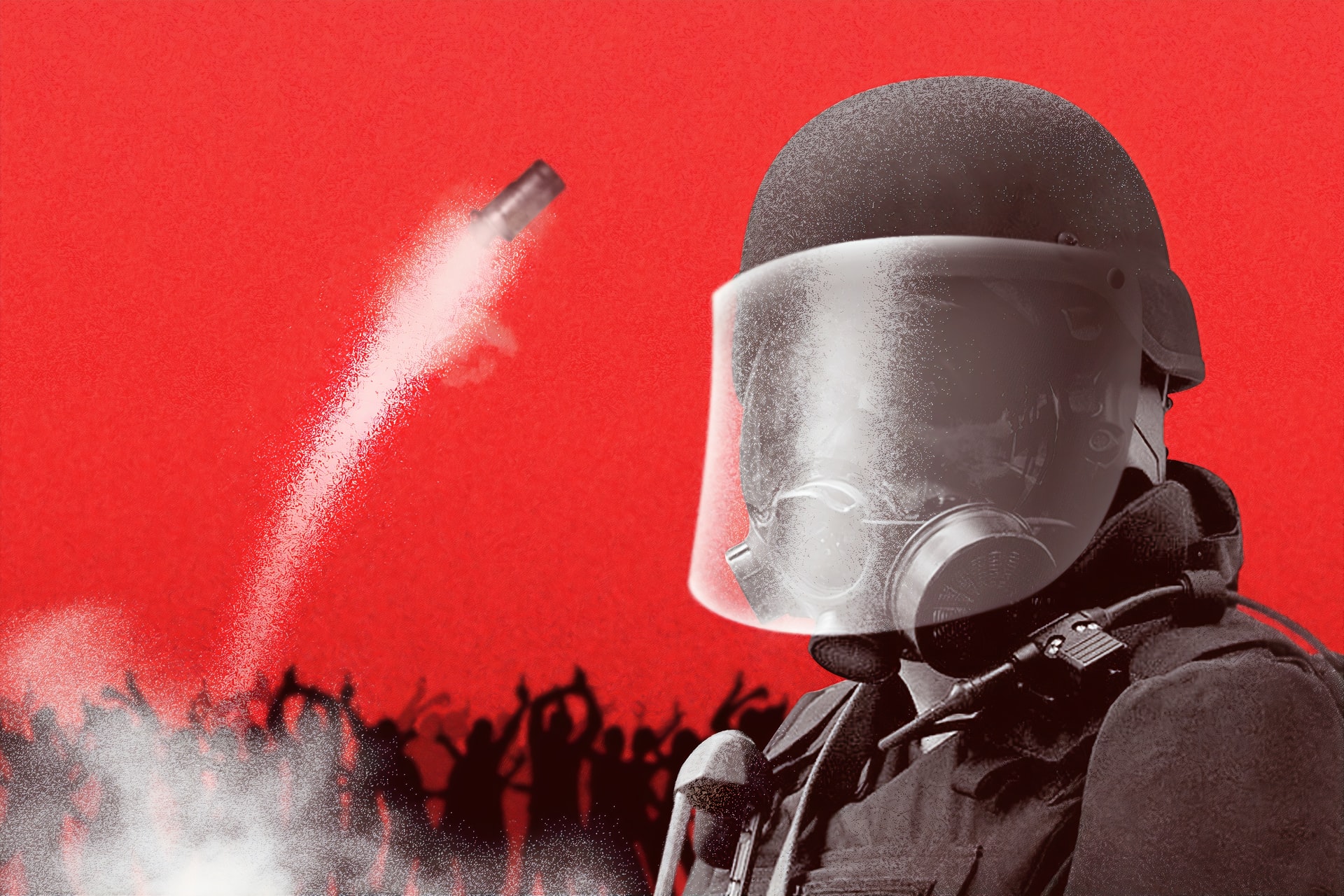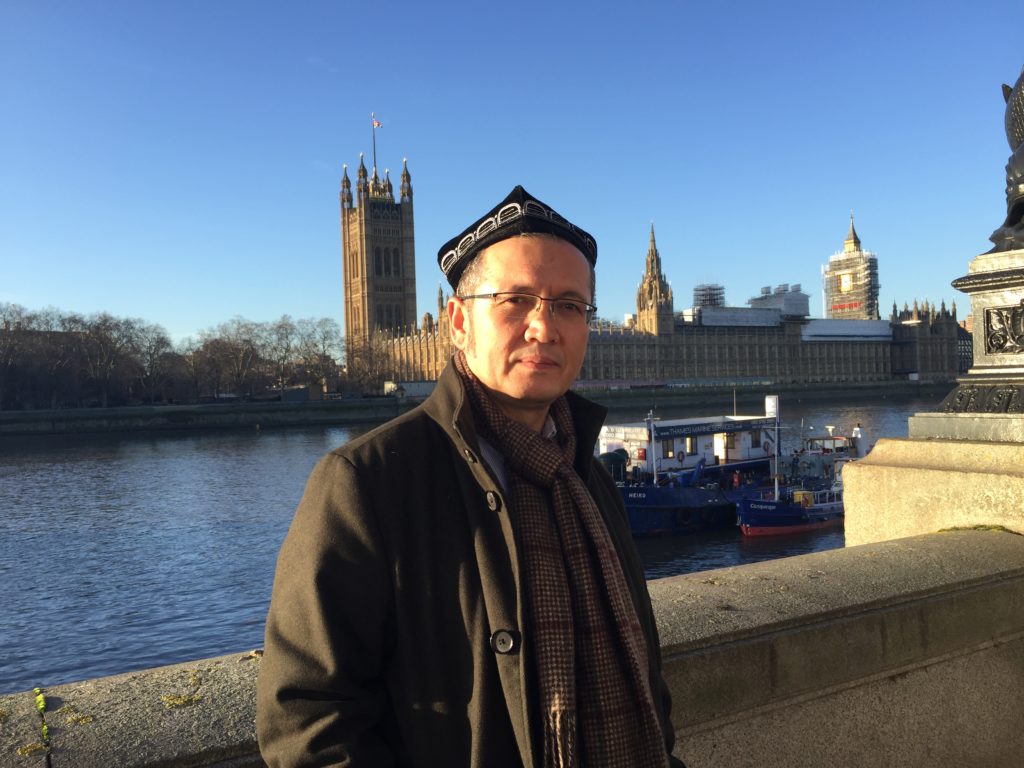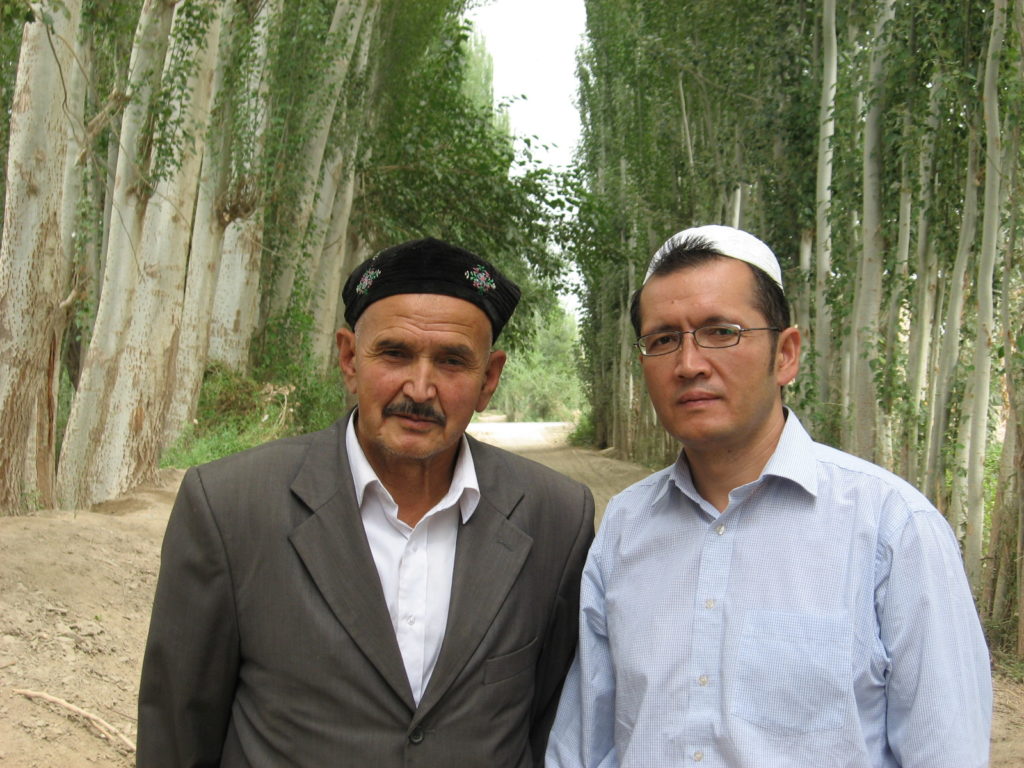China has constantly advanced its biometric technology to monitor Hong Kong protesters and oppress religious minorities. What do we need to know from those living in a surveillance state?
For Lee, nowhere could be safer than this hidden corner deep down a gloomy, narrow alley. It’s a new secret spot he and his friends had found to get away from the densely deployed surveillance cameras.
After a careful double-check, making sure no eye in the sky was watching, Lee breathed a sigh of relief and took off his mask. Then, silently nodding at each other as a hint, he and a group of 20-year-olds began to change their clothes frantically.
They were not some lawbreakers attempting to escape but simply protesters in Hong Kong, apprehensive about their identities being exposed.
“Before the protest, we all understand there are many surveillance cameras, but we don’t understand the exact locations,” said Lee. “After a month of the protest, we became more informed. Every time you go to the field, some people will search for the locations of the cameras. So, they can change their clothes or prepare other things.
“I have to say, people do this not because they possess dangerous things or grenades,” he added, “it’s just because they simply don’t want to be identified as a protester by the government as well as the police.”
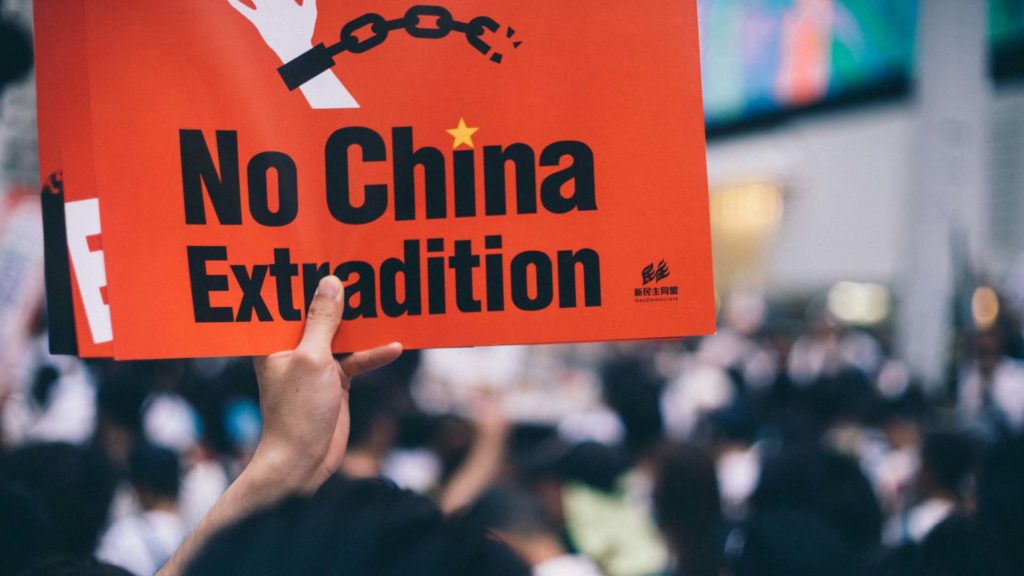
Since the storm of protests against the Chinese government kicked off in June 2019, sparked by an extradition proposal which could potentially put democracy in jeopardy and is now being suspended – life in Hong Kong has completely changed.
The tension between pro-Beijing and pro-democracy groups constantly increased, boiling over until violence broke out.
“There is no such thing as peaceful protest,” Lee said. “Sometimes the police just throw tear gas without any kind of warnings. Also, some undercover [police] involved in the scene and I didn’t really know what’s happening.”
He also said at some point, anti-government protesters without changing clothes could risk being recognised and beaten up by the counter group. Eventually, wearing a mask became a necessity for protesters to protect themselves from physical harm and more importantly, to avoid being detected by the surveillance system.
“We have so much disappointment about the local police and we do not understand how the police will use the footage,” Lee said.
Extensive surveillance network
In China, it is estimated that there are around 170 million CCTV cameras, one for every 12 individuals. And the country, well-known for its strict censorship on the Internet, has built up a data-driven society with advanced surveillance technology. Although it has brought the entire nation into a whole new level of prosperity, it also put its people under absolute control.
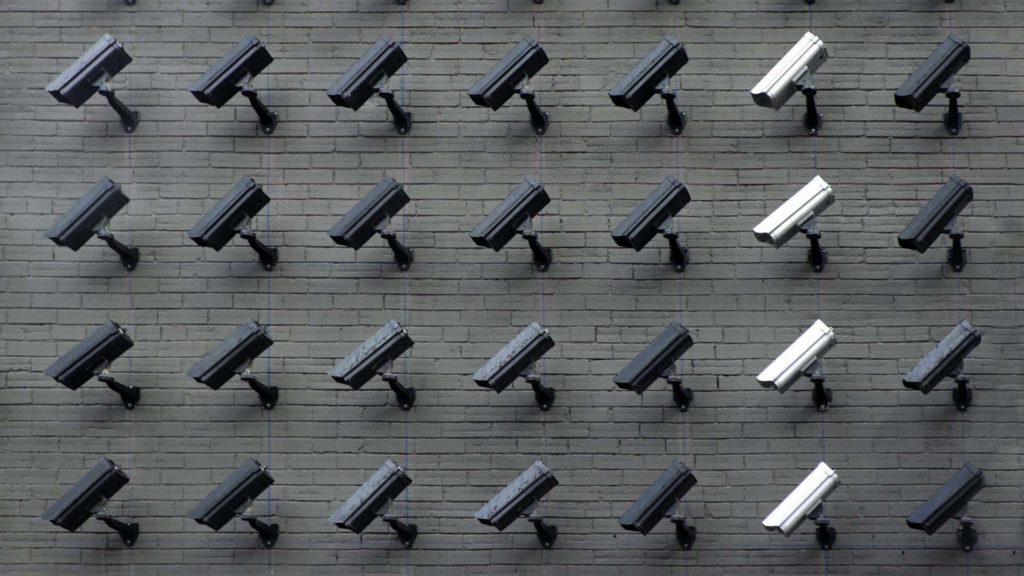
“The Chinese authority is really good at collecting data from its fellow citizens. It’s not just about big data from your cell phone but also about the statistics on the Internet as well as the facial recognition system,” said Lee.
Currently, biometric surveillance technology in China becomes so highly-developed that the detection is able to identify people not only by their faces but also their gaits from a maximum distance of 50 metres.
In some cities, citizens are no longer a stranger to facial recognition (FR) as it has become one of their payment options. Also, it is widely used by police forces as an effective approach to track down escaped criminals.
“Facial recognition is really common in China but only the government has the authority to check and use the footage recorded on CCTV,” said Yang Wang, a Chinese citizen who once worked at state media in China. “As far as I’m concerned, facial recognition has already become an ordinary way for the police to solve cases. It’s very efficient.”
Apart from serious crime, real-time face detection is also used to monitor minor offences, for instance, in Beijing, it is reported that some public restrooms have FR devices to prevent toilet paper from being stolen. And in a city called Rongcheng, northeast of China, offenders of jaywalking, speeding, or fly-tipping will have their faces broadcast on a billboard in public.
Data-driven social credit system
It appears that every movement of each citizen can be closely monitored and examined. Yet, this is simply the tip of the iceberg. The Chinese Communist Party (CCP) is laying out a bigger plan: Social Credit System (SCS).
Combined with its existing surveillance system, CCP has taken Rongcheng as an experimental city to test whether SCS can function well. The whole project was revealed in detail by Kai Strittmatter, an experienced correspondent in China who wrote a book about life in the surveillance state.
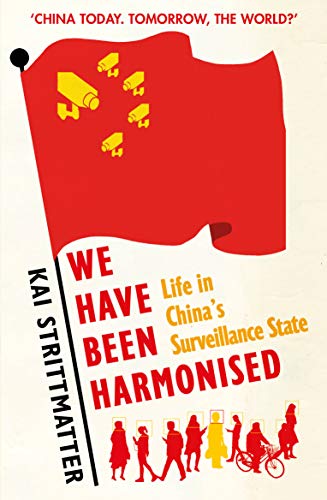
Overall, SCS is a score system where each citizen will be given a certain amount of digital points. According to their behaviour surveilled by the government, social credits will be deducted or added and ultimately, the level of the number will directly affect the range of resources one can access in society. As incredible as it might seem, a similar, nationwide scheme has already been rolled out in the financial field.
“The system is basically about debt and offences. For example, there’s one guy near my home who owed some money and couldn’t pay back, often called ‘Lao Lai’, is being forbidden from taking public transportation like bus and train. And this kind of people are limited in many things that need good credits,” said Wang.
He added, “The only thing ‘Lao Lai’ can do is to pay all the money back. But the credits are not easy to go back, which means you can’t get a loan from banks anymore.”
On the flip side, doors are relatively wide open for people who have higher scores. “The most remarkable benefit is that it would be easier to get your children into university,” Wang said. And the way to earn points is to do good things such as “saving people’s lives by risking yours”.
Never has Wang heard of SCS inscribed by Strittmatter, he believes most western media have exaggerated the consequences of the system. Responding to some reports indicating that the surveillance system is highly alarming and violating civil rights, he said, “If you have high credits, you might be able to rent a car without any deposit. Conversely, the bank might not allow you to take out a loan because of your low credits. This is actually quite logical.”
The oppression in Xinjiang
However, when it comes to Xinjiang, one of China’s autonomous territories, the accusation of surveillance abuse seems solid. It is believed that over a million of Uyghur Muslims have been detained in so-called concentration camps with tons of CCTV cameras around.
“I’ve lost contact with my mother since December 2017 soon after my father died,” said Aziz Isa Elkun, an ethnic Uyghur who fled to the UK in his late 20s. “I was not able to know anything about my mother, now she is a widow, has health problems, and 78 years old.
“I am the only child of my mother… I don’t know exactly whether she has been detained or not. But my step sister was detained in the camp for more than a year and was released last year in October.”
Growing up in East Turkistan (Xinjiang), Aziz said he once lived in a lovely village with his family before Chinese migrants occupied the land and demolished their houses. When he was a student, he wrote a poster to celebrate the first anniversary of Uyghur protests and participated in the Tiananmen demonstrations.
The thing he didn’t expect at the time was that after graduation, with these “bad records”, he was completely unemployed and targeted by the government. Left with no choice, he decided to leave.
More than two decades have passed. He is now a British citizen with freedom of speech to criticise the Beijing administration. In response to Aziz’s denunciation, the CCP took his family as hostages.
“It ended up very ugly. They cut off my line, my communication with my mother. I was just feeling very bitter,” said Aziz, whose father then died soon after that. “When I was missing my father, I discovered on Google map that his tomb was destroyed. I cannot stand it for many weeks. I couldn’t sleep. I was so depressed, and I revealed it to the media.”
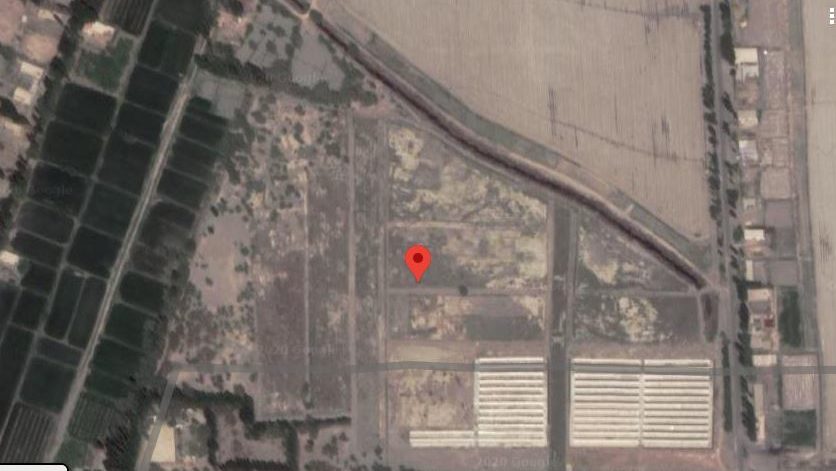
Unfortunately, Aziz is not the only Uyghur who stays in a foreign country and suffers harassment from Beijing. Last year, a leaked document from the Chinese government showed that Uyghur students studying abroad have been constantly monitored and demanded to behave appropriately as their families are caged in the internment camp.
This year, more reports have revealed that thousands of Uyghurs are trying to leave China due to the government’s prolonged surveillance control and oppression. And those who successfully escaped continue to be targeted, threatened, and chased by Beijing in exile.
Under the pressure, most of them are too fearful to speak out, unwilling to disclose what happened in Xinjiang in an attempt to protect their family from detainment and avoid repatriation.
“If I go back and they kill me. That’s not a problem for me. But I’d spent three years in prison, and I know what that torture is like, and I can’t bear this again,” Abdurehim Parac, a Uyghur poet who fled to Turkey in 2013 after a decade of surveillance incarceration, told The Times on a podcast.
Speaking of the reason behind the oppression, Aziz said, “It’s about territory, about occupation, about resources. The Chinese government has economic and political power. It can demolish our identity, language, and aspirations of building up a state.” He then added, “Chinese Communist Party is so fake, so inhuman.”
Whilst Aziz is struggling to become the voice of the afflicted, people in China and even residents in Xinjiang barely know the existence of internment camps because access to western reports is blocked and state media only cover news about terrorism in the area.
The Chinese government claimed that concentration camps are misunderstood by westerners, insisting they are actually vocational skills training centres built to educate Muslim minorities who are deemed categorised as fanatically religious rebels.
As Wang said, “Over the last 30 years, there has been at least one to two terror attacks each year. This is why the government has to arrest those extreme Muslims. In Xinjiang, terrorism is indeed increasing. Many of my previous classmates studying there said you can see the police patrolling everywhere on the street.”
However, according to Aziz, he by no means considered himself as an extremist. “I’m not a politician. I’m not a leader of any organisations. I am a simple human; she is my mother and he is my father. I don’t care about anything, but I do care about them. So, I’m talking about inhumanity.”
Being asked about Aziz’s case, Wang said, “This is a normal repercussion that commonly happens in China. We have strict boundaries that people shouldn’t cross at all, which are all related to politics. Only the economy and culture are available for Chinese people to discuss and participate in.”
The expansion of China’s surveillance power
It is alleged that the extensive surveillance network in Xinjiang camps was built up with the help of a Chinese tech giant, Hikvision, which the US heavily criticised and banned. But as a country which has second-most CCTV per person just following China, the UK now has estimated 1.2 million cameras produced by the firm.
Explore the map to see where China’s surveillance products have been exported
When the UK joined the other democracies to condemn China for its abuse of surveillance technology, privacy campaign groups question whether it is safe for Britain itself to develop facial recognition and conduct trials in public.
“I would say it’s [FR] a good thing if it’s used in a democratic country and I know this is a very normal technology in the UK but in China…,” said Ho, an active protester from Hong Kong. “I mean… no matter what kind of thing with a good purpose in the hand of the Chinese government, it became something that is evil and unacceptable.”
However, it raises another question: can British people completely trust that their government will always use the technology in an acceptable way?
Studying in Cardiff for over a year, Wang said in terms of surveillance cameras in public spaces, there is not much difference between China and the UK. “Actually, the reason the British government uses facial recognition is the same as it happens in Xinjiang: to combat terrorism,” he then added, “If we don’t have censorship, life in China is not different from in the UK.”
Last year, shortly after the Hong Kong protest raged on, Beijing imposed a ban on face masks to help the authority and its surveillance algorithm to identify “rioters” more easily. And soon after the pandemic died down in China, the government passed a new security law to deprive Hong Kongers of right to demonstrations. For this reason, the CCP has been flooded with harsh criticism from around the world.
However, while Black Matter Movement burst out in the West, some operations carried out by democratic regimes somewhat resemble what took place in China.
A warning to the West
In the US, although it is unsure whether the police are using FR to make arrests amid the ongoing protests, in several cities, they certainly have access to tech giants who restore people’s images online. According to the Washington Post, police forces have already asked those companies to share the data sets. Subsequently, President Donald Trump sent federal offices to cities like Portland to suppress the “riots” by flashbang and rubber bullets.
In the meantime, the UK police are also alleged to have rolled out FR during the protest, and in spite of a backlash from civil rights organisations, they still announced that there would be no reconsideration of using face detection as a policing method.
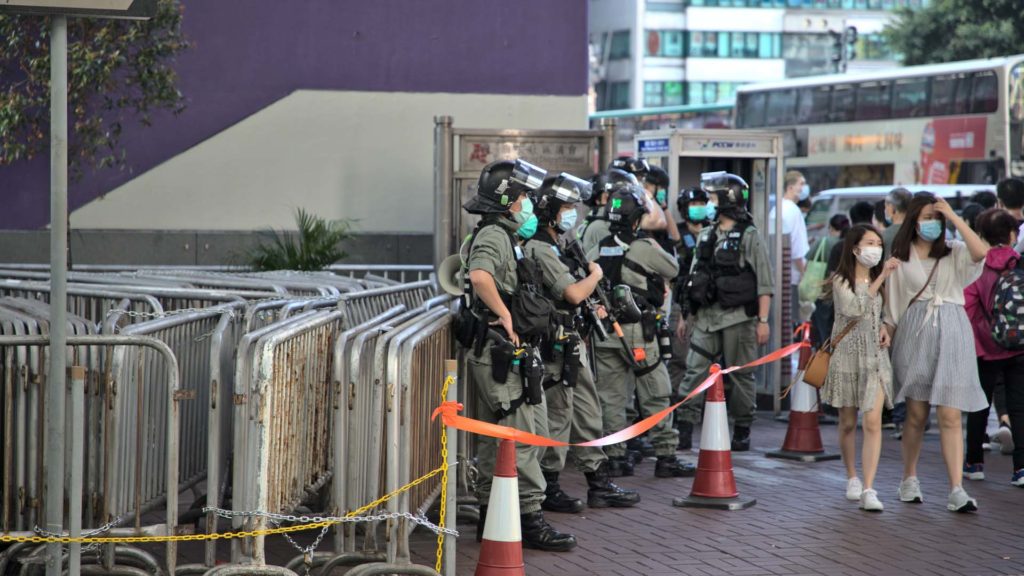
Whilst the oppressed in China are struggling to escape from being monitored and traced, it is probably time for people in democracies to be more aware of where the data-driven surveillance system is leading them.
Although most British people believe their personal data and privacy are under better protection due to more robust laws in the country, the Metropolitan police admitted in an internal report that there is no specific regulation about FR at the moment since it’s an emerging technology.
It is clear that Britons might need to stop turning a blind eye to a vast scale of CCTV and the government’s reckless attitude towards mass surveillance.
The realisation that neither democracy nor civil liberties should be taken for granted but advocated is what made a majority of Hong Kong citizens take to the streets and dare to wage war against a powerful surveillance state with countless digitised eyes set in place.
Without being intimidated, Lee joined as many protests as he could. And every time when he was wearing a mask, rushing to the scene, instead of feeling emotional, he said solemnly, “I believe it is something that we need to do. it’s a responsibility, a duty as Hong Kongers.”
Click the icon to know more about Xinjiang, Hong Kong, and Rongcheng.
